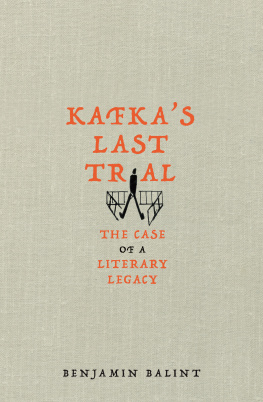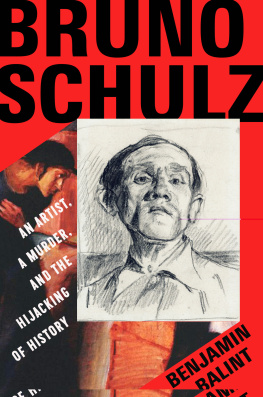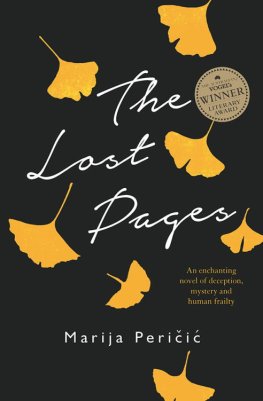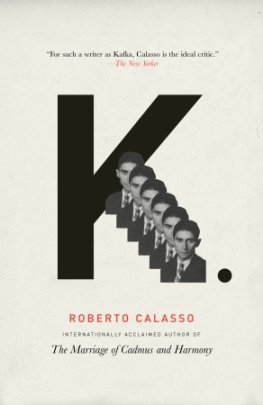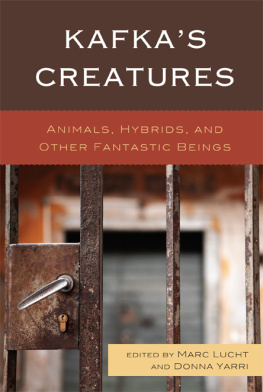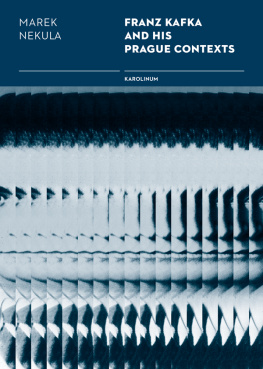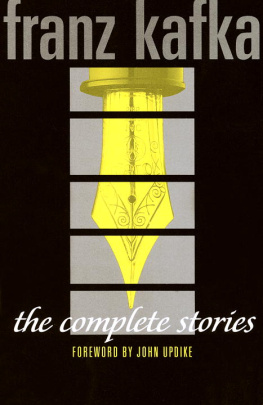For Karina
1
The Last Appeal
Supreme Court of Israel, Shaarei Mishpat Street 1, Jerusalem
June 27, 2016
The word sein means two things in German: being and belonging-to-him.
Franz Kafka, Meditation, aphorism 46
O ne summer morning in Jerusalem, Eva Hoffe, eighty-two, sat with her hands clasped on a polished curved wood bench in an alcove of the Israeli Supreme Courts high-ceilinged lobby. To pass the time before her hearing, a friend who had come to lend support leafed through a copy of the daily newspaper Maariv. On the whole, Eva avoided the press; she resented the farrago of lies generated by journalists bent on portraying her as an eccentric cat-lady, an opportunist looking to make a fast buck on cultural treasures too important to remain in private hands. A headline inked in large red letters on the front page caught Evas eye. Theyre even putting David Bowies lock of hair up for auction, she said with a hint of indignation. Yes, as if it were a religious relic, the friend replied.
The fate of another kind of relic would be decided on this day. Three months earlier, on March 30, 2016, Eva had learned that the Supreme Court had agreed to hear her case, given its public significance. Oddly, Evas case did not appear on the courts public agenda alongside the others listed for the day. A digital screen in the Supreme Court entrance hall announced her hearing only as Anonymous v. Anonymous.
Eva had arrived almost an hour early; perhaps she had missed the screen on her way in. Today, in any case, anonymity would elude her, no matter how devoutly she wished for its comforts. An eight-year custody battle of sorts was reaching its climax. Earlier stages of the trialdense with dilemmas legal, ethical, and politicalhad been covered in the Israeli and international press as the hearings wound their way through the Tel Aviv Family Court (September 2007 to October 2012) and the Tel Aviv District Court (November 2012 to June 2015). From the outset, the contest had pitted private property rights against the public interests of two countries: Does the estate of the German-speaking Prague writer Max Brod (18841968) belong to Eva Hoffe or the National Library of Israel, or would it be best housed at the German Literature Archive in Marbach, Germany? At stake was more than the estate of Max Brod, a once acclaimed figure in Central European cultural life. Brod was the friend, editor, and literary executor of another Prague writer, whose name stands for modern literature per se: Franz Kafka.
Brods estate included not only his own manuscripts, but also sheafs of Kafkas papers, as brittle as autumnal leaves. Ninety-two years after Kafkas death, these manuscripts held out the promise of shedding new light on the uncanny world of the writer who coined an inimitable, immediately recognizable style of surreal realism and etched the twentieth centurys most indelible fables of disorientation, absurdity, and faceless tyrannythe rare writer whose name became an adjective. The unlikely story of how Kafkas manuscripts came into the hands of the Hoffe family involved a then-unrecognized writer, endowed with genius, whose last wish was betrayed by his closest friend; a wrenching escape from Nazi invaders as the gates of Europe closed; a love affair between exiles stranded in Tel Aviv; and two countries whose obsessions with overcoming the traumas of the past came to a head in the Supreme Court on this day. Above all, the trial opened up another, highly charged question: Who owns Kafka?
Eva, who now found herself in the eye of the storm, was born in Prague on April 30, 1934, a decade after Kafka was buried in the citys Jewish cemetery. She was five years old when she fled the Nazi-occupied city together with her parents, Esther (Ilse) and Otto Hoffe, and her older sister Ruth. She showed me photos of her mother Esther as a young beauty in Prague with her pet dog, a Great Dane named Tasso, after the sixteenth-century Italian poet best known for his poem LaGerusalemme liberata (Jerusalem Delivered, 1581). I named one of my cats Tasso too, Eva said.
On arriving in Palestine, Eva attended school in Gan Shmuel, a kibbutz near the northern town of Hadera, and then studied until age fifteen at the agricultural boarding school at the Ben Shemen Youth Village in central Israel. Her favorite teacher there, the artist Naomi Smilansky (19162016), took Eva under her wing. But Evas time at Ben Shemen was occluded by loneliness. I suffered from terrible homesickness there and cried almost every night, she said. At the outbreak of Israels War of Independence in 1948, with Ben Shemen besieged by forces of the Arab Legion, Eva and the others were evacuated in armored buses.
After the war, Eva served in a Nahal unit of the Israel Defense Forces (such units, under the command of the Education and Youth Corps, combine social volunteerism, community organizing, agriculture, and military service). On completing her service, she opted to study musicology in Zrich. Before completing her studies, however, she returned to Israel in 1966, in part to soothe her father Ottos anxieties of imminent hostilities between Israel and its neighboring Arab states. He suffered from a terrible fear of war, she said. He feared they would slaughter us.
The Six-Day War broke out in the summer of 1967. Every day for six days, Eva walked to Cafe Kassit on Tel Avivs Dizengoff Street, where she sipped espresso at one of the tiny tables spilling out onto the sidewalk, beneath the six panels of marionette-like harlequins and musicians and you chat away, talking about our operations to Haolam Hazeh [a weekly magazine published by Uri Avnery] journalists.) Anyone who was anyone, said Uri Avnery, one of the cafs habitus, rubbed shoulders with one another, and in friction itself there is inspiration. And every day, Eva brought home snatches of overheard conversations, updates on the progress of the war. Her father greeted her reports of Israeli victories with disbelief.
After the Six-Day War, Eva taught music and rhythm to first-and second-grade children, delighting in their improvisations. The next year, however, Eva suffered a double loss: her father and the writer Max Brod, a Prague migr and a father figure to her, died in the space of five months. She found she could no longer take pleasure in either playing or teaching music.
As Eva grieved, the Israeli poet and songwriter Haim Hefer, another denizen of Cafe Kassit, recommended her for a job at El Al, the Israeli airline. She served as a member of the ground staff for the next three decades. I didnt want to be an air-stewardess, she said, because I wanted to be close to my mother. Instead, she took an almost childlike glee in listening to the roar of a planes engines, in watching the ground mashallers, with their reflecting safety vests and acoustic earmuffs, wave their illuminated wands and guide an arriving plane to its gate. She retired in 1999, at age sixty-five.
In all her years at El Al, Eva never felt like flying to Germany. I couldnt forgive, she said. Nor in all those years did she marry. When I heard how scathingly Felix Weltsch [a friend of Kafka who fled from Prague to Palestine with Max Brod] talked about his wife Irma, I knew I didnt want to get married. Reconciling herself to childlessness, she preferred to live in a kind of symbiosis with her mother Estherand their catsin their cramped apartment on Tel Avivs Spinoza Street.

